Gardening is not merely a hobby; it’s a journey into a world where soil and seeds can heal the mind and invigorate the spirit. Whether you’re just beginning to dip your fingers into the earth or you’re a seasoned cultivator of blooms and greens, the garden offers a sanctuary from the hustle and bustle of daily life. Here, amid the vibrant hues and gentle rustle of leaves, lies a profound opportunity to nurture not just plants, but our mental well-being.
In this article, we will explore how gardening can be a balm for the soul, offering benefits that extend far beyond the physical. You’ll discover how tending to a garden can reduce stress, enhance your mood, and even improve cognitive function. As we delve into the science and stories behind these benefits, you’ll gain insights that can transform your gardening routine into a rejuvenating practice for the mind. Whether you’re cultivating a windowsill herb garden or managing a sprawling backyard oasis, the mental health rewards of gardening are ripe for the picking.
Gardening as Stress Relief
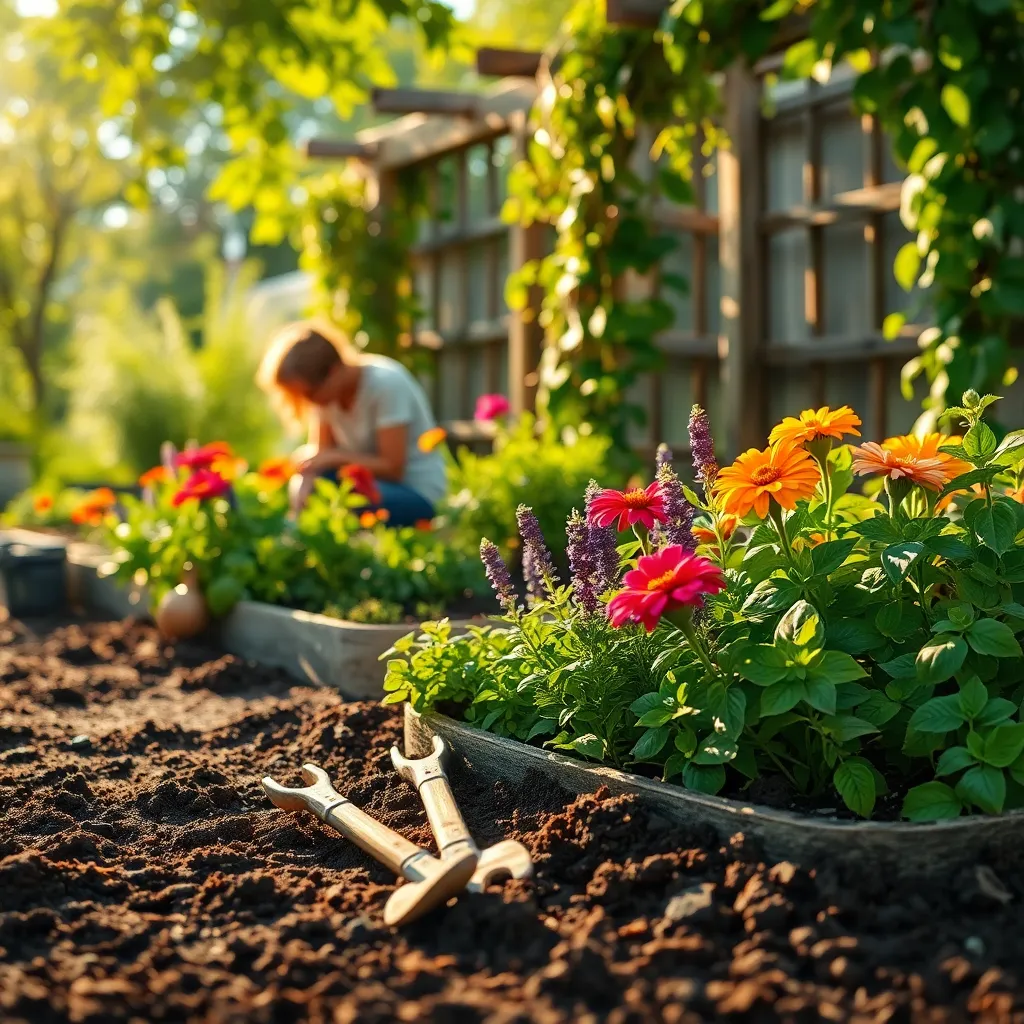
Gardening can be a powerful form of stress relief, offering both physical and mental benefits. By engaging with the soil and nurturing plants, gardeners can find a sense of peace and accomplishment.
To start, consider planting a small herb garden, which is manageable and rewarding. Herbs like basil and mint are easy to grow and thrive in well-drained soil with at least six hours of sunlight daily.
For those with more experience, try cultivating a flower garden with perennials like lavender or coneflowers. These plants not only add beauty to your space but also attract pollinators, enhancing the garden’s ecosystem.
Remember, consistent watering is key to reducing plant stress, which in turn reduces your stress. Most garden plants prefer a deep watering once a week, allowing the water to reach the root system effectively.
To deepen the stress-relieving benefits, incorporate mindfulness into your gardening routine. Focus on the sensory experiences: the feel of the soil, the patterns of sunlight, and the scents of the plants.
- Beginner tip: Start with easy-to-grow plants like lettuce or radishes that provide quick results.
- Advanced tip: Experiment with companion planting to enhance growth and protect plants naturally.
Boosting Mood with Nature
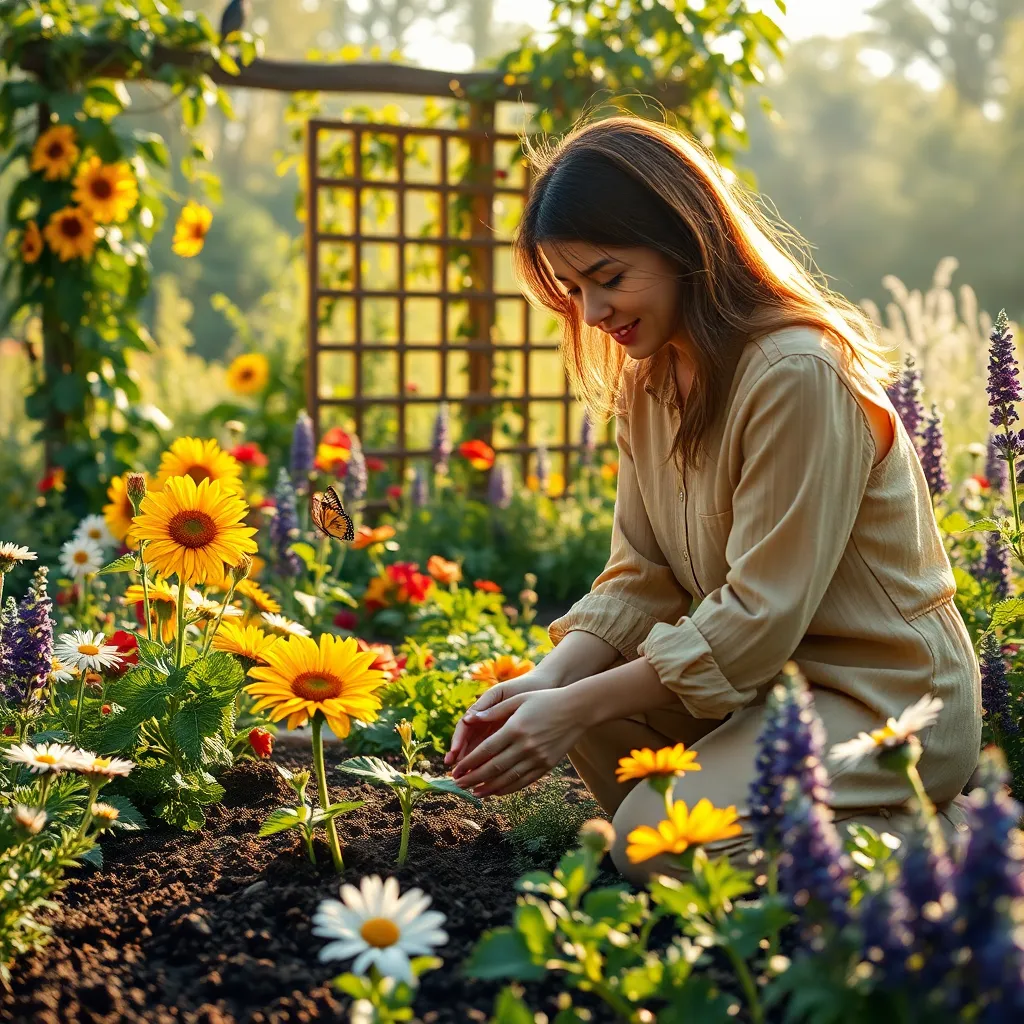
Time spent in nature can have a profound impact on your mood, and gardening is a wonderful way to immerse yourself in the natural world. Start by choosing plants that are known for their calming effects, such as lavender or chamomile, which thrive in well-drained soil and full sun.
Incorporating different scents and colors into your garden can significantly enhance your mood. Consider planting a mix of aromatic herbs like rosemary and mint, which not only smell delightful but are also easy to grow in a sunny spot with regular watering.
Engaging your senses through gardening can provide a daily boost of positivity. Try planting a sensory garden with a variety of textures and scents, including plants like lamb’s ear for touch and fragrant roses that bloom well in nutrient-rich, slightly acidic soil.
For those with more experience, creating a meditation space in your garden can be incredibly rewarding. Use bamboo or ornamental grasses to create a serene backdrop, ensuring they are planted in moist, fertile soil to maintain their lush appearance.
Mindfulness through Plant Care
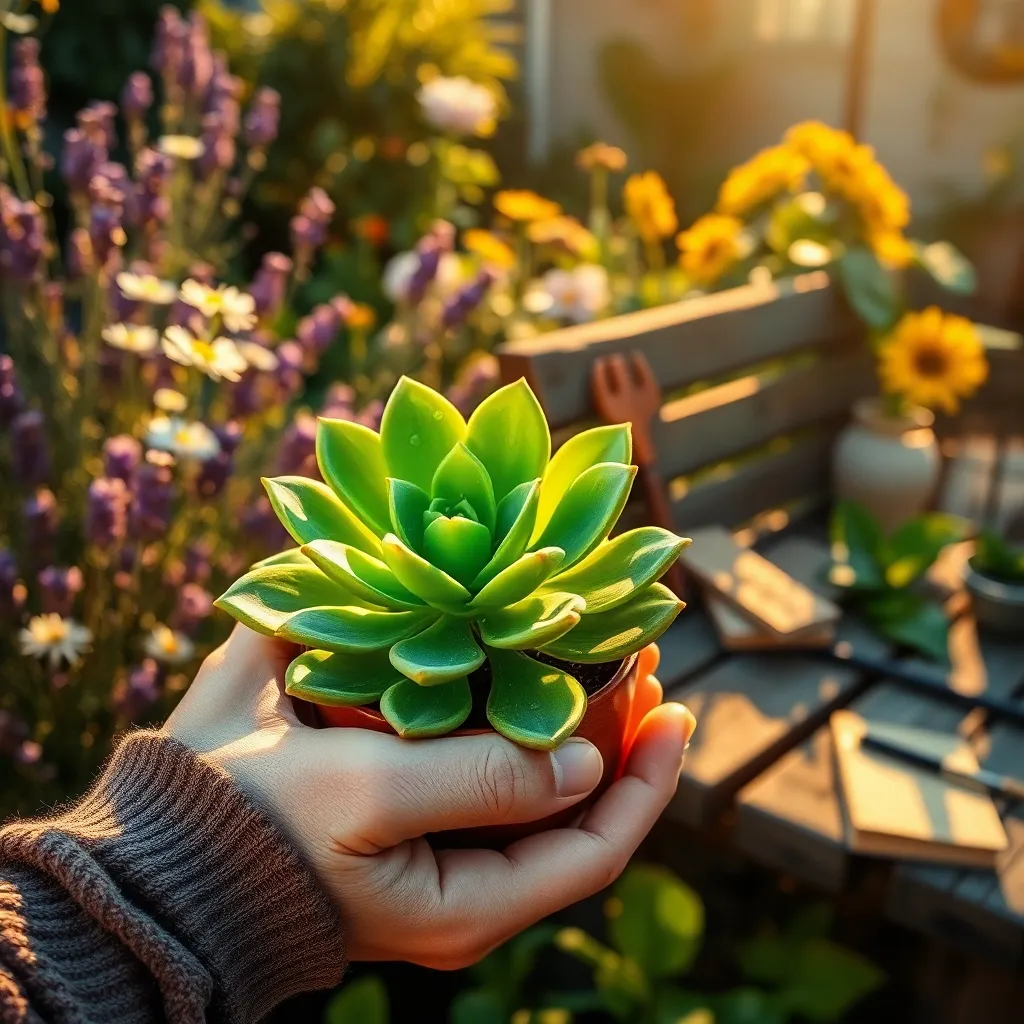
Engaging in plant care offers a unique opportunity to practice mindfulness, promoting mental clarity and relaxation. Focusing on the simple tasks of watering, pruning, and observing your plants can help ground you in the present moment.
To begin, choose a quiet time of day to tend to your plants, allowing yourself to tune out distractions. Pay attention to each plant’s needs, such as the appropriate amount of water or the best light conditions, which can vary widely depending on the species.
Beginner gardeners might start with easy-to-care-for plants like succulents, which require minimal watering. These plants thrive in well-draining soil, such as a cactus mix, and prefer bright, indirect sunlight.
For more advanced gardeners, consider growing herbs like basil or mint, which can enhance your mindfulness practice through their aromatic qualities. These herbs need consistent moisture and rich, well-draining soil to flourish, and frequent harvesting will encourage new growth.
Implementing a routine for plant care not only supports the health of your garden but also reinforces a habit of mindfulness. As you nurture your plants, take note of their changes and progress, which can serve as a tangible reminder of the benefits of patience and attention.
Enhancing Focus in the Garden
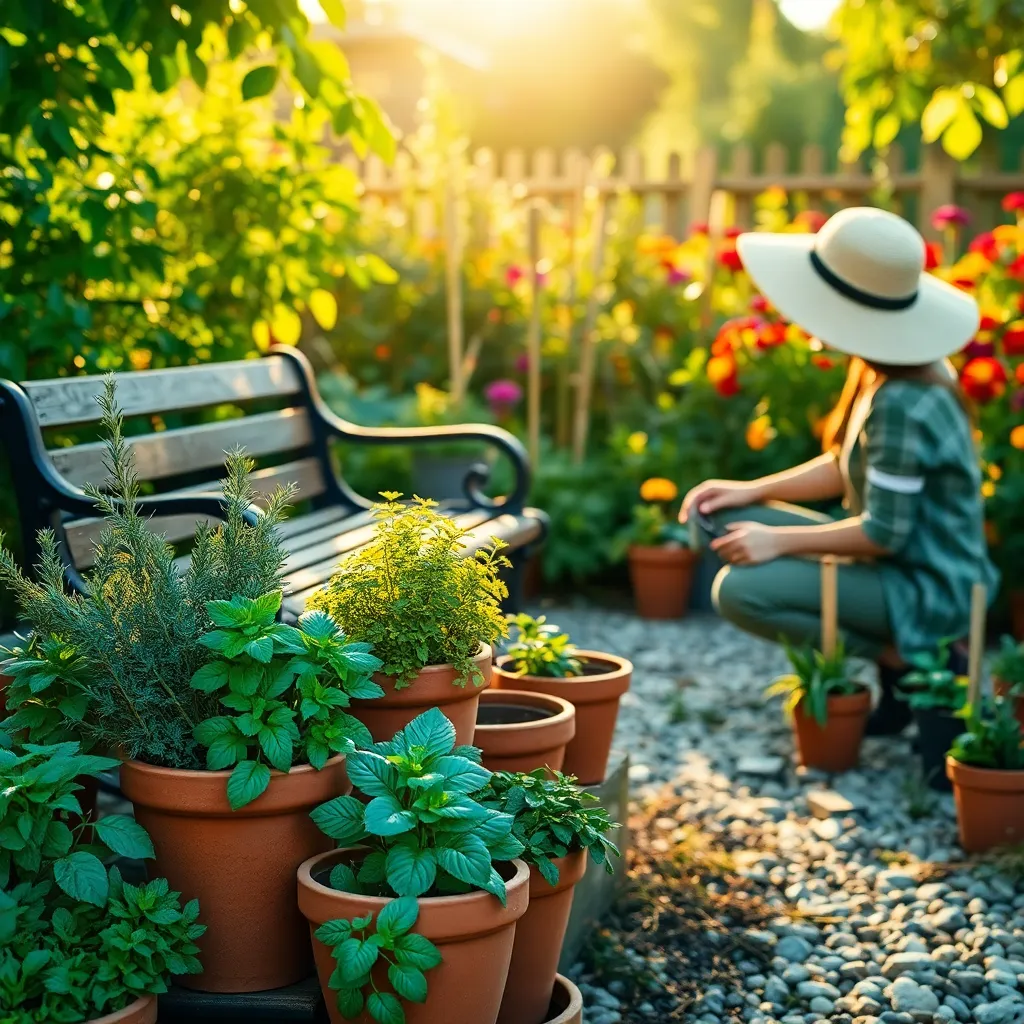
Gardening can significantly enhance focus, allowing you to immerse yourself in the task at hand. Start by setting small, achievable goals like planting a row of seeds or pruning a specific section of your garden.
Choosing the right plants can help maintain your attention and interest. Consider plants that require regular care, such as tomatoes, which need consistent watering and pruning to thrive.
Regular garden maintenance tasks, like weeding or deadheading flowers, can serve as meditative activities that improve concentration. Use a simple schedule to allocate specific days for these tasks, ensuring you remain engaged without feeling overwhelmed.
To elevate your focus, try introducing a variety of plants that cater to different senses. Select fragrant herbs like lavender or rosemary, which not only require minimal care but also offer calming scents that aid concentration.
For those ready to deepen their gardening practice, experimenting with companion planting can be a rewarding challenge. Pairing plants like basil and tomatoes can enhance growth and deter pests, offering a practical way to hone your skills and keep your mind sharp.
Building Community Connections
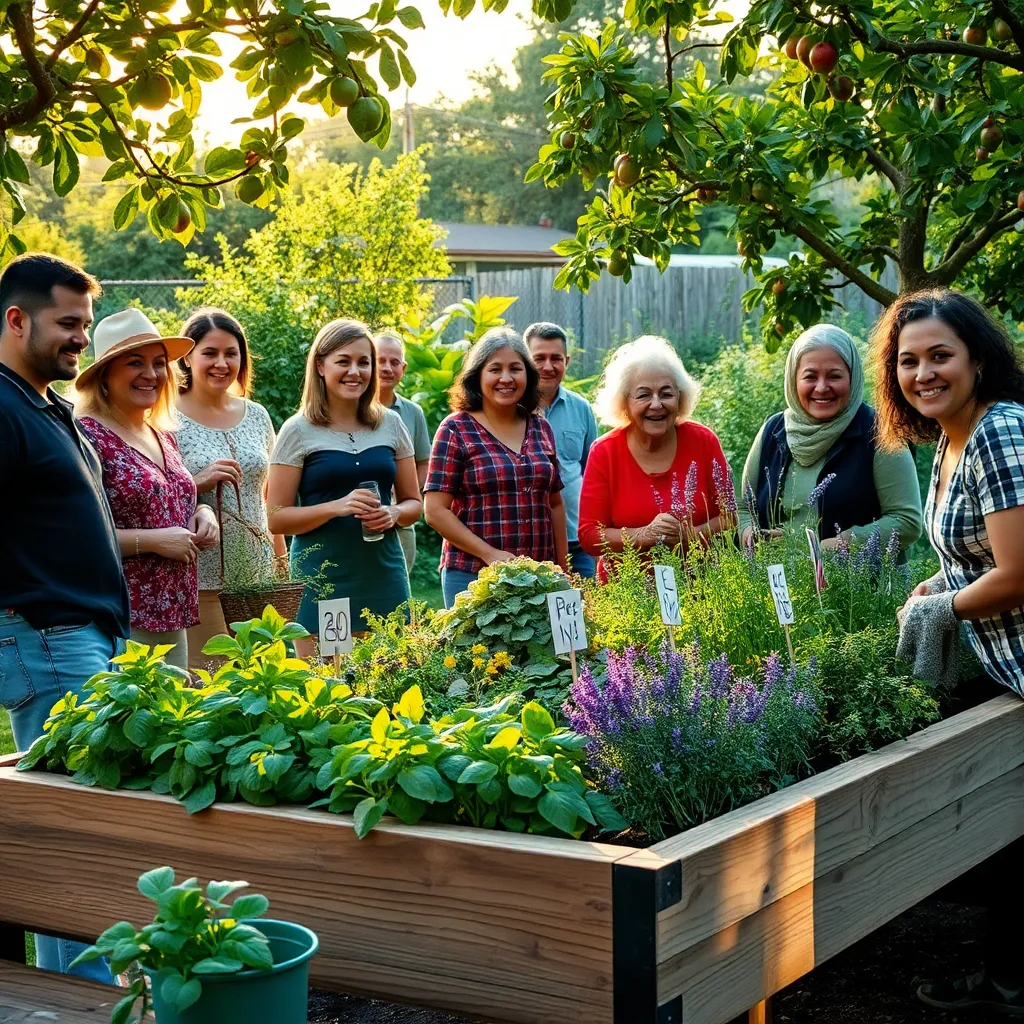
Gardening offers an excellent opportunity to build community connections, which can significantly enhance your mental health. Participating in community gardens allows you to share resources and knowledge, making gardening more enjoyable and successful for everyone involved.
Engaging in a community garden provides a chance to learn from others and share your own experiences. You can exchange tips on topics such as optimal planting seasons or effective pest control methods, broadening your gardening expertise.
By joining forces with your neighbors, you can tackle larger projects like building raised beds or installing a rainwater collection system. Sharing the workload and resources not only makes these tasks more manageable but also fosters a sense of belonging and teamwork.
Consider organizing regular gardening meet-ups or workshops to strengthen community ties and enhance collective learning. These gatherings can cover a range of topics, from basic plant care to more advanced techniques like composting or soil testing, accommodating all skill levels.
Conclusion: Growing Success with These Plants
In exploring the soothing world of gardening, we’ve discovered five key ways it enriches our relationships: fostering patience and nurturing, enhancing communication through shared tasks, providing a peaceful space for bonding, reducing stress to cultivate positivity, and promoting a sense of accomplishment together. These insights emphasize that nurturing a garden can be a metaphor for nurturing relationships, as both require attention, understanding, and care.
As a first step, consider dedicating time this week to plant a small garden or even a few potted plants with your loved one. This shared activity can open channels of communication and offer a shared goal to nurture together.
Don’t let these insights fade; bookmark this article to revisit the strategies that can fortify your relationships over time. By keeping these concepts at your fingertips, you’re laying the groundwork for a thriving and resilient relationship.
Looking ahead, remember that investing in your emotional well-being through activities like gardening can be a cornerstone of lasting relationship success. Empower yourself today to cultivate a garden of love and understanding, ensuring your relationships bloom beautifully for years to come.

